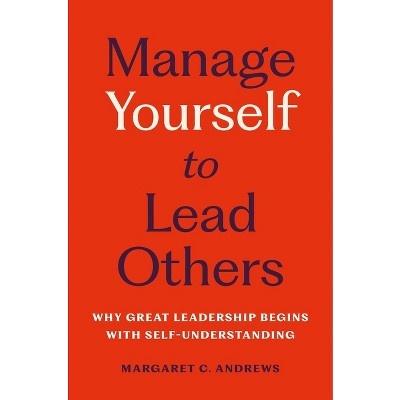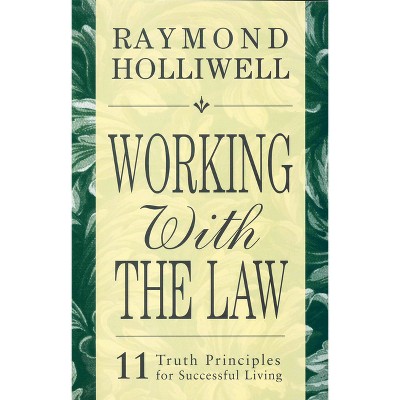Sponsored

Working Law - (Chicago Law and Society) by Lauren B Edelman (Hardcover)
$97.00
In Stock
Eligible for registries and wish lists
Sponsored
About this item
Highlights
- Since the passage of the Civil Rights Act, virtually all companies have antidiscrimination policies in place.
- About the Author: Lauren B. Edelman is the Agnes Roddy Robb Professor of Law and professor of sociology at the University of California, Berkeley.
- 312 Pages
- Freedom + Security / Law Enforcement, Discrimination
- Series Name: Chicago Law and Society
Description
About the Book
In the half century since the passage of the Civil Rights Act, virtually every company now has anti-discriminatory procedures and policies in place. Many commentators point to the existence of such measures and have proclaimed that significant progress has been made. Lauren B. Edelman s book tells quite a different story, showing not only how, but why, discrimination and inequality still persist in the American workplace. Because the law regulating organizations tends to be broad and ambiguous, managers, HR departments, and lawyers within organizations play a critical role in shaping what these laws actually mean in practice, often infusing legal rules with managerial values and ways of thinking in the process. This managerialization of law often results in organizational policies and procedures that, while paying symbolic lip service to legal principles, still fail to dispel longstanding patterns of discrimination and inequality. Just as importantly, Edelman shows how the understandings of law that evolve within organizations can and do seep back into the legal domain, unobtrusively influencing lawyers for both plaintiffs and defendants and ultimately even judges. She shows, for example, how judges defer to ideas about what it means to comply with laws which were, in fact, constructed within corporations. The first, comprehensive theory of the relationship between law and organizations, Working Law uncovers the institutionalized organizational practices and culture within workplaces that give meaning to law and shape legal consciousness in the courtroom and in society more generally."Book Synopsis
Since the passage of the Civil Rights Act, virtually all companies have antidiscrimination policies in place. Although these policies represent some progress, women and minorities remain underrepresented within the workplace as a whole and even more so when you look at high-level positions. They also tend to be less well paid. How is it that discrimination remains so prevalent in the American workplace despite the widespread adoption of policies designed to prevent it? One reason for the limited success of antidiscrimination policies, argues Lauren B. Edelman, is that the law regulating companies is broad and ambiguous, and managers therefore play a critical role in shaping what it means in daily practice. Often, what results are policies and procedures that are largely symbolic and fail to dispel long-standing patterns of discrimination. Even more troubling, these meanings of the law that evolve within companies tend to eventually make their way back into the legal domain, inconspicuously influencing lawyers for both plaintiffs and defendants and even judges. When courts look to the presence of antidiscrimination policies and personnel manuals to infer fair practices and to the presence of diversity training programs without examining whether these policies are effective in combating discrimination and achieving racial and gender diversity, they wind up condoning practices that deviate considerably from the legal ideals.Review Quotes
"Why, after more than half a century since the passage of the Civil Rights Act of 1964, do we continue to observe racial and gender discrimination in the workplace? This is the central question in Edelman's Working Law: Courts, Corporations, and Symbolic Civil Rights . . . [The book] makes for a solid addition to just about everyone's bookshelf."-- "Law and Politics Book Review"
"Working Lawmakes a landmark contribution to understanding the relationship between law and organizations. It also raises vitally important questions for future research. [...] More generally, Working Law strongly suggests that a fundamental shift in the approach of employment discrimination law toward more systemic factors and less focus on the agency of individual bad actors would be helpful. And this, many employment discrimination scholars would argue, is long overdue."--Catherine R. Albiston "Law & Social Inquiry"
"Lauren B. Edelman's Working Law: Courts, Corporations, and Symbolic Civil Rights(2016) offers an empirically supported theory of legal endogeneity, explaining how managerialized ideas of compliance with employment discrimination legislation diffuse in organizational fields and shape judicial doctrine. Managerialization and legal endogeneity explain how and why equality-promoting civil rights legislation may do little to reduce workplace inequalities."--Robin Stryker "Law & Social Inquiry"
"Lauren Edelman's Working Law is remarkably relevant to the study of financial regulation. In particular, three factors that Edelman identifies as specifically contributing to legal endogeneity and symbolic compliance--ambiguous law, a lack of clear outcome measures, and the presence of legal intermediaries--are especially salient in the context of financial regulation."--Kimberly D. Krawiec "Law & Social Inquiry"
"Working Law brings together and extends substantially thirty years of meticulous research to offer a powerful explanation for how and why equality-promoting civil rights legislation may accomplish little. A comprehensive, definitive statement of the mechanisms of 'legal endogeneity' theory, it is foundational--a must read and clarion call to scholars, policymakers, judges, and civil rights advocates."--Robin S. Stryker, University of Arizona
"A brilliant, theoretically rich, and empirically grounded account of how law shapes and is shaped by the organizational context in which it is applied, Working Law challenges some of our most deeply held assumptions about the causes of and solutions to race and gender inequality in the contemporary workplace."--Devon Carbado, University of California, Los Angeles, author of Acting White? Rethinking Race in "Post-Racial" America
"Edelman's Working Law is simply superb. It breaks through the barriers that too often separate the work of the academy from the lived experience of lawyers and judges. On a personal note, it provides a thoughtful answer to the phenomenon I observed when I was on the bench--why employment law was singularly ineffective in addressing modern discrimination, why courts were satisfied with token compliance with organizational antidiscrimination programs and policies, ignoring the real face of discrimination. It is not often that a scholarly book creates an 'aha' moment for a legal practitioner, especially a former judge. This is surely one of them. It should be part of every judge's training, and on every employment law professor's reading list."--Nancy Gertner, former United States District Judge for the District of Massachusetts
"With this lone comprehensive and empirically supported critique of our national celebration of civil rights, Edelman argues persuasively that we live not in a post-civil rights society--as many have claimed--but a 'symbolic civil rights society, ' an age committed to the trappings of civil rights but little more. Working Law is a distinct, original, and important interpretation of the long-term trajectory of civil rights policy. While most view civil rights policy as a mix of some meaningful implementation and much resistance to it, Edelman makes the striking case that much of the path of change is driven by one force: the interests of major organizational employers and, specifically, the strategies of their managers to inoculate employment practices from challenge. It's hard to overstate the significance of this work."--Charles R. Epp, author of Pulled Over: How Police Stops Define Race and Citizenship
About the Author
Lauren B. Edelman is the Agnes Roddy Robb Professor of Law and professor of sociology at the University of California, Berkeley. A past president of the Law and Society Association, she is coeditor of two books, most recently The Legal Lives of Private Organizations.Dimensions (Overall): 9.2 Inches (H) x 6.3 Inches (W) x 1.0 Inches (D)
Weight: 1.3 Pounds
Suggested Age: 22 Years and Up
Number of Pages: 312
Genre: Freedom + Security / Law Enforcement
Sub-Genre: Discrimination
Series Title: Chicago Law and Society
Publisher: University of Chicago Press
Format: Hardcover
Author: Lauren B Edelman
Language: English
Street Date: November 28, 2016
TCIN: 1006380353
UPC: 9780226400624
Item Number (DPCI): 247-17-5340
Origin: Made in the USA or Imported
If the item details aren’t accurate or complete, we want to know about it.
Shipping details
Estimated ship dimensions: 1 inches length x 6.3 inches width x 9.2 inches height
Estimated ship weight: 1.3 pounds
We regret that this item cannot be shipped to PO Boxes.
This item cannot be shipped to the following locations: American Samoa (see also separate entry under AS), Guam (see also separate entry under GU), Northern Mariana Islands, Puerto Rico (see also separate entry under PR), United States Minor Outlying Islands, Virgin Islands, U.S., APO/FPO
Return details
This item can be returned to any Target store or Target.com.
This item must be returned within 90 days of the date it was purchased in store, shipped, delivered by a Shipt shopper, or made ready for pickup.
See the return policy for complete information.
Trending Non-Fiction

$19.31
was $20.98 New lower price
4 out of 5 stars with 64 ratings

$4.59
MSRP $7.99
Save $5 when you spend $20 on select books
4.8 out of 5 stars with 123 ratings

$6.20
MSRP $10.95
Save $5 when you spend $20 on select books
4.8 out of 5 stars with 33 ratings

$7.09
MSRP $9.99
Save $5 when you spend $20 on select books
4.9 out of 5 stars with 46 ratings













